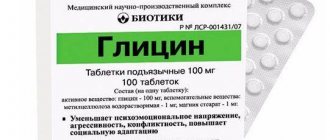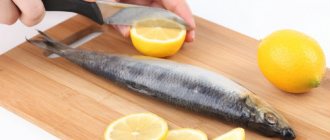When to stop?
Breast milk is a very nutritious and valuable product for a newborn, and no formula, even the most modern, expensive and adapted, can compete with nature itself as the food provided for the baby. Evgeny Komarovsky claims that after teeth appear, a person no longer has a biological need for breast milk.
When deciding to stop breastfeeding, a mother must remember that she is not only a walking milk factory, but also a member of society, a social being, and she needs to perform not only her biological functions (feed the child), but also perform her social functions (going out in public , work, communicate, study).
She may eventually get sick and need medications that are incompatible with breastfeeding, a possibility that cannot be ignored.
If adherents of breastfeeding up to three years want to forget about the social functions of the mother and her personal desires, then that is their business. Breast milk will not harm either a two-year-old child or a five-year-old child. But also of great benefit.
Komarovsky believes that a mother who has honestly fed her baby for up to a year can rest easy—she has fulfilled her biological duty in full. It’s time to think about how to wean a child from breastfeeding after a year.
What does Dr. Komarovsky recommend?
In order to lose weight without harm to yourself and your newborn baby, the doctor recommends actively playing sports and sticking to proper nutrition. His main recommendation is that you need to start the process of fighting extra pounds no earlier than 1.5 months after giving birth. During this period, the main thing is to love your body, since returning to its previous shape takes different amounts of time for women. You cannot deplete yourself with diets or use a harmful component - fat burning pills - if you are breastfeeding.
Komarovsky advises keeping a personal diary (motivation and help). On the pages, mark weight indicators and record personal achievements. When thinking about how to effectively lose weight while breastfeeding without harming the baby, it is important to remember that you cannot cancel breastfeeding without good reason. The recommendations also indicate the need for daily physical activity. Walking, household chores and child care contribute to the gradual burning of accumulated volumes.
Pediatrician Evgeny Komarovsky and his advice are very popular today. Many women correlate their menu with its recommendations for breastfeeding. The basis of a nursing mother’s diet according to Komarovsky is healthy food, and the following should be excluded:
- herbs (including garlic and onions);
- exotic fruits, primarily citruses;
- products containing any types of preservatives and dyes;
- carbonated drinks;
- condensed milk;
- all types of dressings for dishes (primarily mayonnaise, ketchup and adjika);
- pasta in large quantities;
- all kinds of fast food;
- sausages and store-bought semi-finished products;
- pickles, smoked meats, marinades;
- products containing GMOs.
When baby is hungry
1) The baby loses weight or gains it very little. It is no secret that in the first day after birth, the baby loses its original weight by about 200-300 grams. And two weeks later, on mother’s milk, he should make up for it. If not, you should think about it and be wary;
2) 12 wet diapers. The baby is approximately 10 days old and must pee 12 times a day or more. If the number of urinations is much less, he may not have enough breast milk;
3) Another indicator is rare stool. It also indicates that the child is not getting enough to eat.
Children who, after breastfeeding, fail to get the amount of food they need
- they cry often
- grumpy
- unhappy
- and they want tits again after a while.
When the baby's appetite is greater than the milk that the mother until recently satisfied, this means that the baby is simply growing and needs more milk than before.
That is why there is less milk in the breast, or rather the amount remains the same, but it is no longer enough for the grown child.
This, however, does not mean that you should give up breastfeeding out of fear and immediately switch to bottle feeding. You can compensate for the lack of milk with artificial milk substitutes.
Where to begin?
It’s difficult to start, warns Komarovsky. A baby who, at 12-14 months old, knows perfectly well what his mother’s delicious tita is, is unlikely to want to give it up without a fight. He will fight like it was the last time, yell, throw tantrums, demand.
Not everyone, even a very nervous mother, can withstand such conditions. At some point she will give in, allow you to suck a little, and everything will have to start all over again. There is no way to stop milk lactation while the baby is irritating the receptors on the nipple.
To begin the action of weaning your child from the breast, you need to be determined and understand that the baby’s dependence on breastfeeding is no longer physiological, but psychological, and he will live quite normally without breast milk. Mom and grandmother, as well as other relatives living in the same living space, need to stock up on valerian.
It is best to separate mother and child for several days, says Evgeniy Komarovsky. Sending the mother to the country house or to a sanatorium for 5-7 days will be enough for the child to learn to do without breast milk. After the mother’s return, there may be inclinations of the child to take away the pleasure, but they should be resolutely stopped. Of course, the child will be unhappy and may cry. But the mother should not change her decision, otherwise the weaning process will last for months and years and will cause everyone in the household a lot of moral suffering.
If persuasion does not help, try ruining the taste of the milk. To do this, according to Komarovsky, it is enough to eat garlic or smear mustard on the nipple.
If a child receives a breast with such a “product” several times, next time he will think carefully about whether to ask for it again or to make do. Although this method does not work for everyone: some babies really like their mother’s “garlic” milk, and the pungent smell does not bother them at all.
The information that for a child, refusal to breastfeed is severe stress and trauma for life, according to Evgeniy Komarovsky, has no basis. All this is speculation of mothers who are fans of breastfeeding up to five years and are far from medicine and even psychology. The stress will be minimal and will be forgotten very quickly by the baby if the mother does everything correctly. This means quickly, decisively and irrevocably.
Treatment methods for breastfeeding
Treatment of a runny nose during lactation should be carried out competently, since there are a large number of remedies that are not recommended for nursing mothers . Also, you cannot increase the indicated dosages and extend the period of taking the drug. Self-treatment is not recommended for more than 5-7 days, or at high temperatures. It is advisable for a doctor to monitor the condition of the nursing mother.
If a lactating mother does not experience other cold symptoms with a runny nose, then treatment can be reduced to facilitating nasal breathing.
Safe and effective drugs
Vasoconstrictors
Often a runny nose is accompanied by nasal congestion. Swelling of the mucous membrane occurs due to dilation of blood vessels . In this case, you can use vasoconstrictor medications that are allowed during breastfeeding. Doctors advise choosing drugs that do not contain preservatives. Such medications are stored for no longer than three months, but their composition is safer for a nursing mother.
Vasoconstrictor drops are made on the basis of xylometazoline, oxymetazoline and naphazoline. In pharmacies these drugs are known as:
- Nazivin.
- Otrivin.
- Nazol.
- Sanorin.
- Naphthyzin.
They cannot be combined with each other. It is worth noting that many drugs with a vasoconstrictor effect are divided into children's and adult dosages . When breastfeeding, it is better to choose baby ones. Although these medications have a low concentration of the active substance, they can still help relieve nasal congestion no worse than adult medications.
In this case, they will enter the baby’s body in breast milk in smaller quantities.
Vasoconstrictor drops are not recommended for use for more than three days, as addiction may occur.
Antimicrobial
Herbal-based medications can help cope with harmful microbes and bacteria . For example, such a remedy is Pinosol drops, which will help a lactating mother quickly cope with a runny nose. This remedy is allowed during breastfeeding, but there is a possibility of allergies.
Moisturizers
If a woman who is breastfeeding has a runny nose, then the most effective and safest method of treatment is the use of drugs such as:
- Aquamaris.
- Rhinostop.
- Physiometer.
- Dolphin.
- Rinostop and others.
The main component of these products is a sterile isotonic solution made from sea or ocean water. These medications act gently and are not at all dangerous if swallowed . They can also be used an unlimited number of times.
The drugs are used to cleanse the nasal passages and soften the crusts that have formed, reduce nasal congestion, eliminate itching and moisturize the mucous membrane. If a nursing mother purchases a saline solution with a nebulizer, she increases the chances of a speedy recovery. The main thing is to follow the instructions on the package. The remedy can also be prepared at home by adding salt to boiled drinking water. In addition, it is allowed to use sodium chloride solution, that is, saline solution.
Folk ways to combat the disease with hepatitis B
If a mother is afraid to use medications while breastfeeding, then you can use traditional methods. But you should understand that you will have to visit a doctor in any case and the use of any folk recipes must be consistent with him. If a runny nose bothers a mother while breastfeeding, then you can fight it in the following ways:
- A decoction of chamomile and eucalyptus , which is used to wash the nasal passages. This drug will eliminate pathogenic microbes and make breathing easier.
- Onions and garlic are powerful natural antibiotics. These components in the form of drops eliminate pathogenic flora and improve immunity.
- Honey is another great remedy to combat cold symptoms. It can have an anti-inflammatory effect and increase resistance. But it is worth remembering that honey is a strong allergen.
- Aloe can quickly cleanse the nasal passages and have an antimicrobial effect. Also an allergen.
If a nursing mother believes that treating a runny nose using only traditional methods will be safer, then this is not so. A huge number of natural substances can cause allergic reactions . In infants they are often severe, with swelling. Therefore, a lactating mother should not self-medicate and it is better to visit a specialist.
Below is a visual video about folk remedies for fighting the runny nose:
We feed on demand
Before I tell you how to increase lactation, let me remind you of the basic principles of breastfeeding that will help not reduce it.
- The first breastfeeding is in the first hour after birth. This “acquaintance” of the baby with the mother contributes to the appearance of the first delicious milk.
- Feeding on demand. Now most pediatricians are confident that feeding should not be done every two hours, but as soon as the baby asks for the breast. In addition, this will eliminate bottle feeding, which can completely “wean” the baby from the breast.
- No time restrictions. The baby himself knows when he has eaten, and therefore, even if he likes to “hang” on his chest for half an hour or even an hour, do not take the treat away from him.
- Be sure to feed at night. 3-4 night feedings will significantly increase lactation
- Don't forget about proper application! The baby’s hearty “meal” depends on it. The nipple should be grasped along with the areola. Then the baby will easily empty your breast, reaching the most delicious “hind” milk. By the way, this will protect you from mastitis and various seals.
Best time
You can stop feeding at any time of the year, says Evgeny Komarovsky. Whether it's winter or summer outside, it doesn't matter. But it is important whether the child is ready for change. There are several situations in which it is better to postpone weaning:
- Baby's illness. If he's feeling bad, it's not a good idea to make things worse.
- Painful teething. If the process is in full swing, it is better to give the usual breast and not injure the already inflamed gums. In addition, breast milk contains a large number of antibodies to various infections, and it has antibacterial properties.
- A change of scenery. If you are going to move with your child or go on vacation in a week or two, you should not start weaning. It is better to leave it for later, when the child gets into a familiar environment.
After recovery, in a few days, you can begin your plan.
For a very long time, people believed that it was impossible to stop breastfeeding during the hot season, and at that time it was quite reasonable - after stopping breast milk, the incidence of intestinal infections almost always increased. Now is the 21st century, and basic compliance with hygiene standards makes it possible to stop feeding without problems when the mother needs it.
Why does a child refuse the breast?
Most likely, says Komarovsky, your child is not hungry. The hunger instinct works perfectly from the very first minutes of a person’s life, and therefore mothers just need to learn to trust their little children. The little ones know exactly what they want. If the baby has abandoned the breast, then he does not want to eat. If he is underfed, he will scream and no amount of persuasion can calm him down.
Another reason why a child may refuse to breastfeed is the unpleasant taste of milk. His son or daughter knows well and can react to changes in the lineup. True, these changes must be significant; the child will not react to minor ones.
For example, smoking or alcohol taken by the mother during breastfeeding can cause the milk to become bitter. And a too strong perfume that a mother uses can generally push the baby away from the breast. A balanced, proper diet for a nursing woman will help cope with the problem.
Pediatricians cannot come to a consensus on this issue. Some argue that you need to stop breastfeeding when the child is 3 years old, more often the age is 2 years. Evgeny Komarovsky is quite categorical on this issue - 1 year and no later. The doctor explains his position by saying that after 12 months of breastfeeding, mother’s milk begins to lose its valuable and beneficial properties for the baby and becomes essentially useless.
Moreover, it is no longer able to satisfy the needs of a rapidly growing organism. The child already needs meat, fruits, and vegetables. No wonder he got his first teeth! Nature itself hints to the mother that her mission as a nurse has been completed and it’s time to finish.
Diet, dietary supplements and grandmother's cumin
First, pay attention to what you eat. You are aware that your child eats all this too? Then why aren't you still on a diet? Now your diet should not include sausage, fried meat and chocolates, but healthy cereals, fruits, white fish, raw and boiled vegetables, nuts, honey, etc.
Drinking regime is no less important now, because milk is, first of all, a liquid. Be sure to drink not only fruit drinks, compotes and juices, but also plain water. Dill water should also be held in high esteem by you. It will enhance lactation and relieve the baby from colic and constipation.

In pharmacy chains for nursing there are many products that promote lactation. I personally really loved “Babushkino Lukoshko” tea. Teas and “Lactavit” are also praised. Although the “persecution” of dietary supplements has now begun, I will say a few words in support of them. Some of the supplements actually work and help increase your milk supply.
If you have already purchased one of the drugs, be sure to tell your gynecologist about it. He will tell you exactly whether it will be effective and whether it will not harm in your case.
And finally, about my grandmother’s recipes, or folk remedies. They came to us through decades, which means they should help and increase milk production.
· Take 2 tbsp. anise, dill and oregano. Pour a glass of boiling water over this herbal mixture and leave for 30 minutes. Then we will drink the cooled and strained infusion 1 tbsp. three times a day
· Grind a pinch of cumin (fruit) and mix with a glass of sour cream. We will boil this mixture for 3 minutes over low heat. We take it the same way, a tablespoon three times a day.
Termination of lactation
Stopping breast milk production is quite difficult, since its psychomotor mechanism is very stable. But nothing is impossible, says Evgeniy Olegovich, and if the first stage - weaning - has taken place, and the mother has withstood the persistent pressure of the child for several days, then it’s time to make sure that there is as little milk as possible.
To do this, the doctor recommends drinking less fluids. This doesn't mean mom needs to dry herself to death. You just need to follow the drinking regime as it was at the time of the formation of lactation and its maintenance; it is no longer necessary. Under no circumstances should you express milk, even if it happens that the child gets sick a few days after the start of the campaign to wean him from the breast. Pumping starts the production mechanism.
If the above-mentioned measures do not bring much relief to the woman, you can additionally cover the chest with a sheet. Today, Russian women have access to other methods that are considered more civilized throughout the world. They are based on taking drugs that block the ability to lactation at the hormonal and chemical level.
Such drugs that suppress the production of prolactin include, in particular, Bromocriptine or Dostinex. But it is best to start taking pills after consulting a doctor. A decoction of sage and linden flowers, which mother can brew and drink in small portions, also help.
What to eat to lose weight
Weight gain during pregnancy is rapid. On average, a woman gains 10-15 kg. It is not always possible to get rid of them immediately after the baby is born. That is why the question arises of how to choose a weight loss program so as not to harm your own body and the baby who is breastfed.
In most cases, there is no need to resort to special techniques, since hormone levels and metabolic processes return to normal by the time the baby reaches 12 months. For nursing mothers, there is also a special diet that allows you to control weight indicators and monitor volume reduction. It is based on avoidance of flour and fatty foods. Such restrictions allow you to become slimmer. A correct and balanced menu prevails.
So how can a nursing mother lose weight? Difficulties arise at the stage of choosing the optimal time to start losing weight: after breastfeeding or during breastfeeding. Here you cannot do without consulting a doctor. The reason is that the body reacts to changes individually. In some cases, lactation leads to an increase in appetite, in others it leads to an acceleration of metabolic processes.
You can lose noticeable weight while breastfeeding. There is a technique that suggests that weight loss must be divided into 2 stages: from birth to 6 months of the baby and from 6 to 12 months from the moment of birth. At this time, you can begin following a non-strict diet that is suitable for nursing mothers and playing sports, taking into account permissible loads.

. Attention! After a caesarean section, sports and physical activity should be discussed with your doctor.
During the feeding period, you need to formulate a correct and complete diet. For a baby in the first year of his life, the presence of breast milk is very important. A newborn needs it to strengthen the immune system, development and growth of the body. Producing breast milk takes calories from a woman's body.
Important! The calorie intake should not be done by including flour products, sausages or canned food.
Since a newborn baby eats only breast milk in the first month and up to 4-6 months, avoiding harmful foods is very important. These include:
- carcinogens;
- preservatives;
- dyes.
They are contained in:
- canned food;
- sausages;
- semi-finished products.
During the breastfeeding period, preference should be given to proper and balanced nutrition.
Nutrition after childbirth while breastfeeding involves following the recommendations given at the time of discharge. During lactation, you need to avoid fried, salty or peppered foods. These foods help increase your water intake. Fluid in cells and tissues increases volume and leads to swelling.

A positive attitude towards the problem will speed up its resolution
Laziness ruins lactation
Well, I’m sure my advice helped you, and even the mothers who had already despaired of getting breastfeeding perked up a little. Do not forget the words of Komarovsky, remember that lactation must be constantly stimulated. The best stimulant is your baby. Put it to your chest more often, don’t be lazy, and your little one will always be full, happy and healthy.
Have more delicious milk! Don't forget to check out our cozy forum, perhaps you can give inexperienced mothers some good advice and support them. Well, I have to say goodbye to you for a while, I promise to return soon with a new topic.










